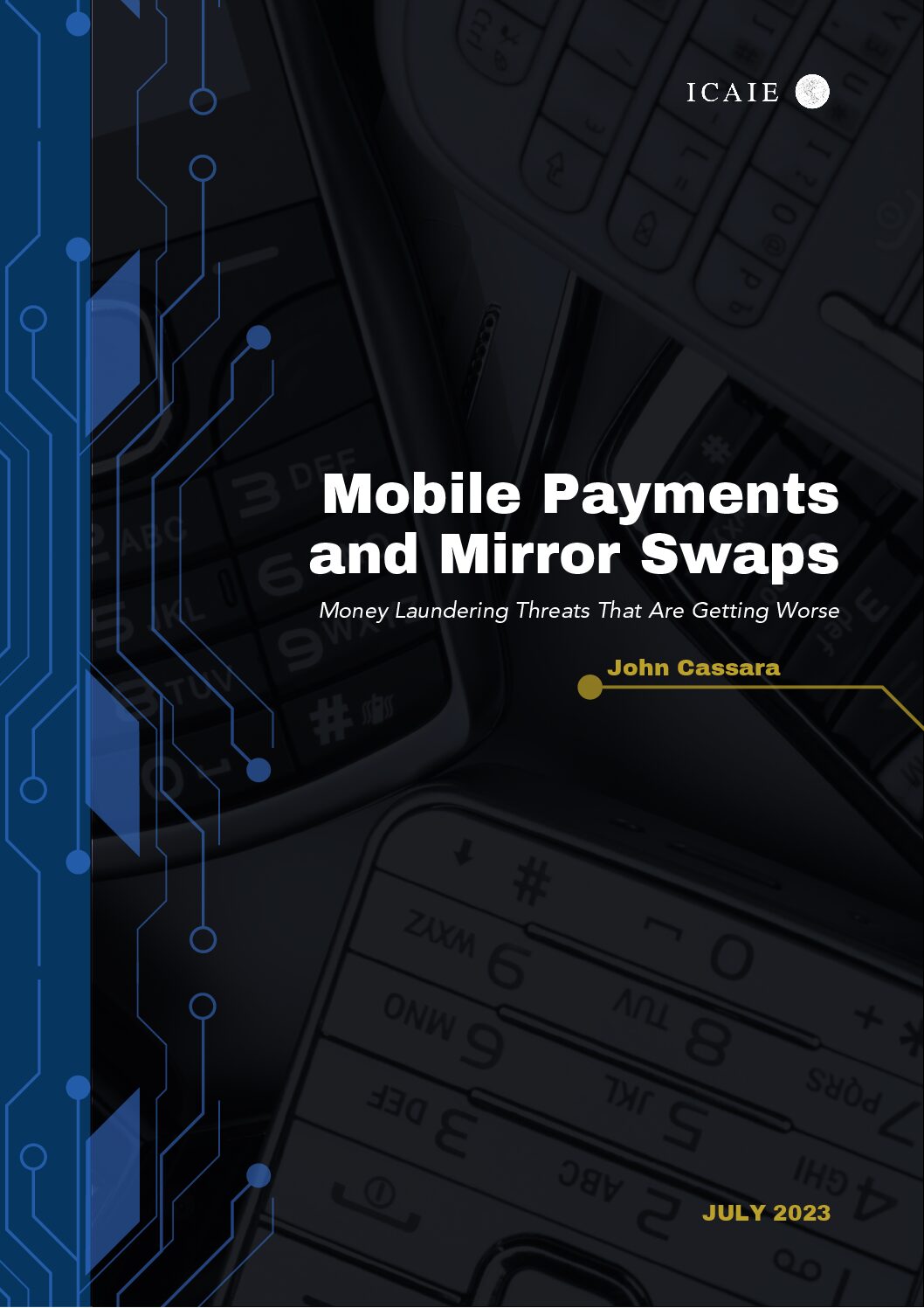ICAIE New Policy Brief – Mobile Payments and Mirror Swaps: Money Laundering Threats That Are Getting Worse (July 2023)
This ICAIE policy brief will summarize mobile payments (M-payments) evolution as a money laundering methodology. The initial focus will be on the use and growth of M-payments and resultant money laundering in the developing world. The policy brief will then describe the Black Market Peso Exchange (BMPE) and the introduction of mirror swaps or the laundering of illicit proceeds via Chinese cell phone apps to facilitate money laundering worldwide. Furthermore, an assessment will be made of the current regulatory measures employed by the U.S. government to combat mobile payment laundering, along with suggestions for strengthening these countermeasures.
In another twist on laundering via M-payments, Chinese actors working with the Mexican cartels have pioneered the growing use of “mirror accounts” or “mirror swaps” to launder the proceeds of crime. Mirror accounts or mirror swaps are illicit methods used to launder the proceeds of crime. They involve the creation of fraudulent financial transactions that via Chinese mobile phone apps aim to obscure the true origin and ownership of illicit funds.
With “swaps,” Chinese brokers often work with Chinese organized crime groups and cartels to identify Chinese/American cash-intensive businesses willing to cooperate. How do the swaps work? The Chinese/ American businessperson receives illicit proceeds from the Chinese broker working with the cartels. The broker generally has a network of businesses that cooperate, or the broker identifies customers by posting advertisements on internet bulletin boards or private WeChat forums online. The Chinese American business later “places” the proceeds of crime into its revenue flow and represents the drug cash as legitimate proceeds from the business.
Among the Policy Brief‘s Recommended Actions: Convene Panel of Experts: The issues surrounding the laundering of illicit funds via M-payments are complicated. They overlap various areas of interest and expertise. It is apparent that the U.S. government, particularly Treasury’s FinCEN, is unwilling or unable to lead. The National Security Council (NSC) should convene an interagency working group to examine M-Payments, mirror swaps, TBML, and other new money laundering methodologies that are harming U.S. national security. The U.S. Congress must also have a shared responsibility in ensuring open testimony and discussions on the current law enforcement and regulatory limitations and policy shortcomings to address the threats posed by M-payments and other newer forms of money laundering in the digital world.
On a parallel track, working with other similar-minded partners, ICAIE will work with other partners to convene a group of industry and well-respected organizations and think tanks to launch an open dialogue forum where concerned law enforcement representatives, regulators, representatives from mobile carriers, and big data and analytics companies can discuss both the challenges and the
opportunities of engineering AML/CFT countermeasures, policies, authorities, and procedures to address the harms associated with M-Payment systems and related criminality. Perhaps such experts could devise ways to counter the “mirror-swap” laundering method described above. Various stakeholders have roles to play and expertise to share. It’s much easier and less expensive to take proactive steps in the early stages of new financial threats rather than to wait and play “catch-up.”
This new ICAIE brief was authored by John Cassara, ICAIE Senior Advisor and Board Member,

